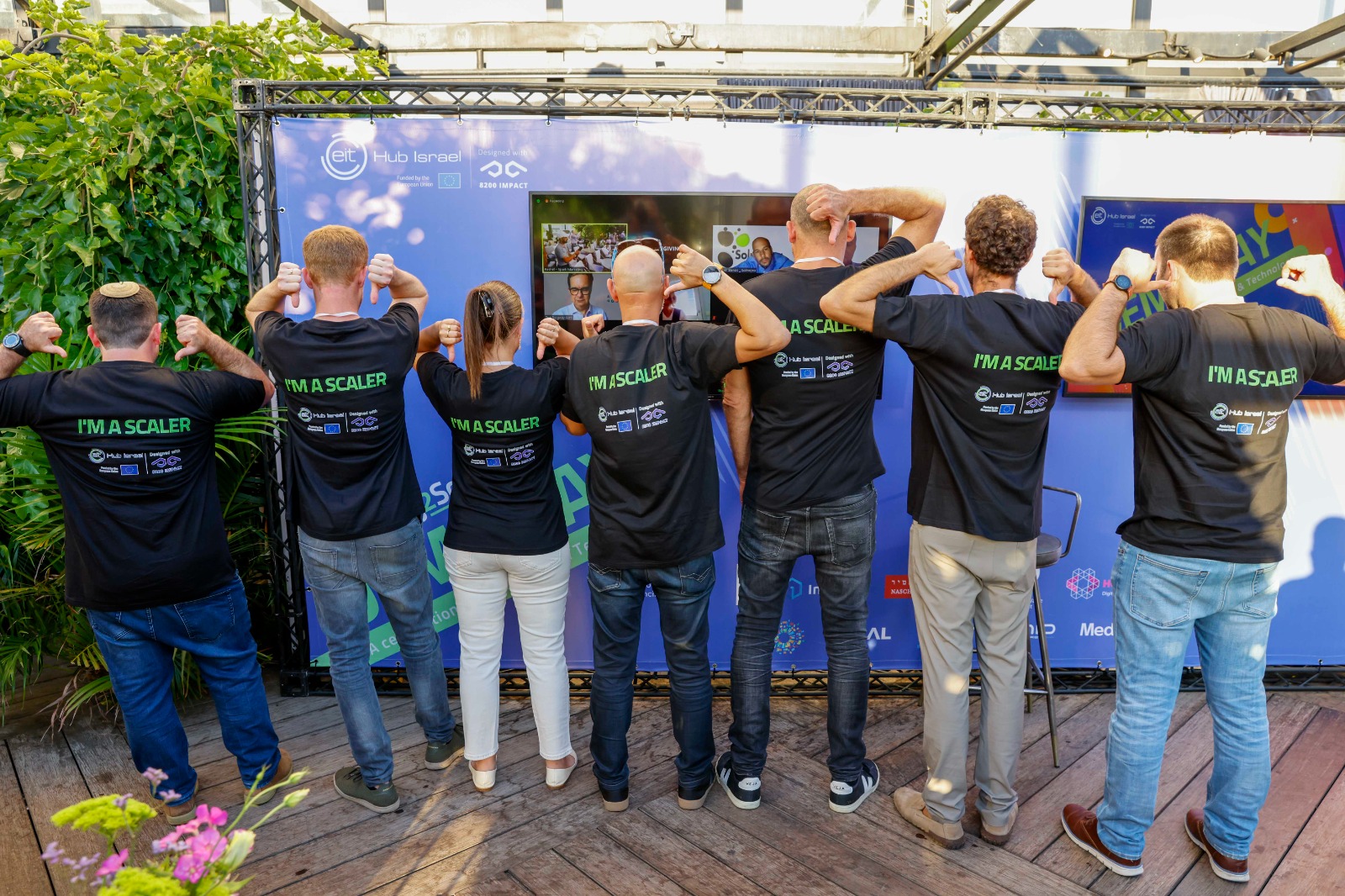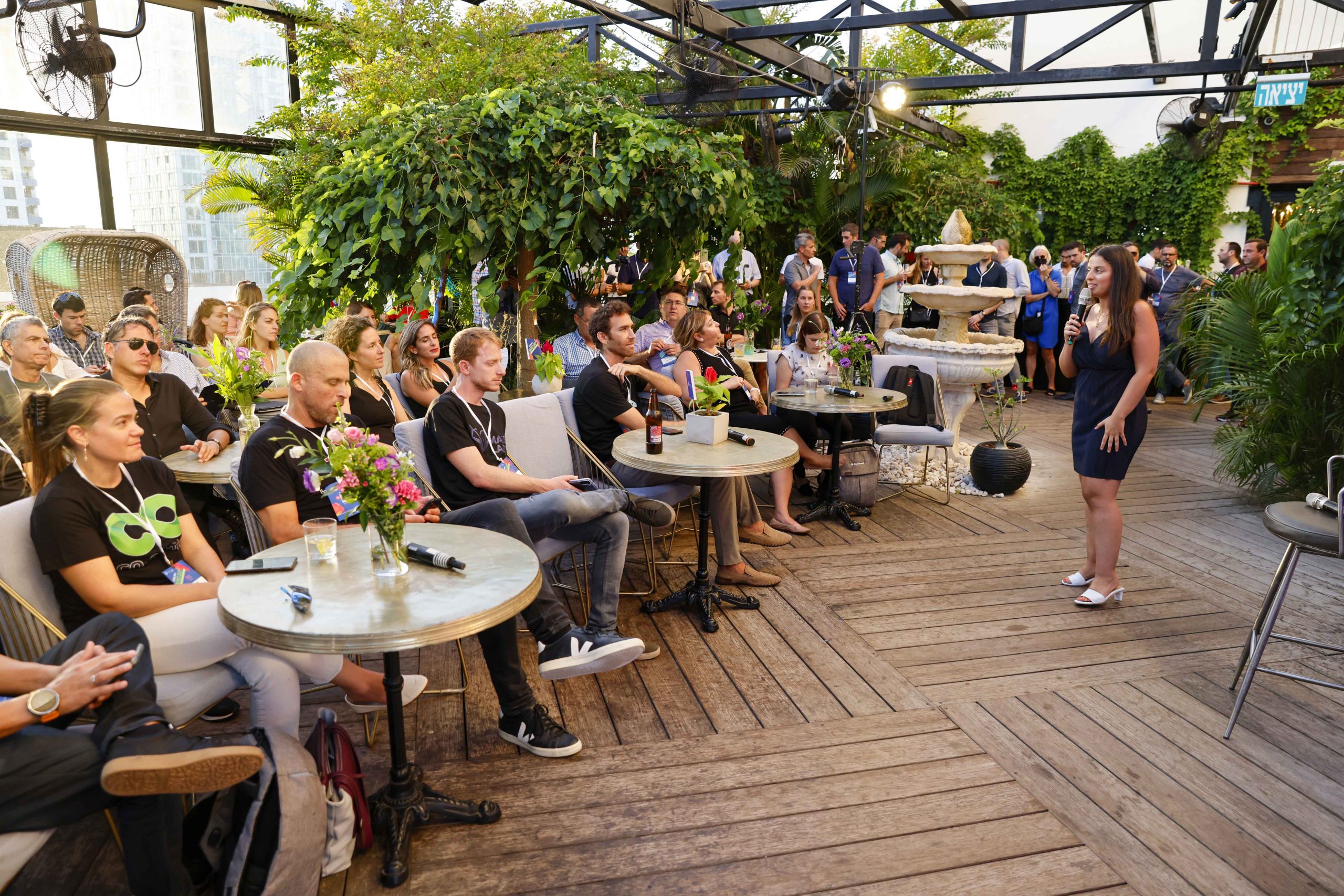By: Maayan Sharon
Many people refer to Demo Days as though they are the end of a project or a programme,“The Holy Grail” you could say – but this is a misleading approach that fails to grasp the potential of the event.
A Demo Day is only the beginning of the road to startup success.
The programme gave you the tools, and the Demo Day gives you the push that you need to jump forward onto the next step. In fact, if you know how to utilize the spotlight in the right way, a good Demo Day can be your game changer. There is one rule that you need to follow to make your company shine brighter than the competition –
“Do not drop the mic!”
Just over a month ago on one of the best Tel Aviv rooftops overlooking the sunset, we produced a Demo Day that marked the finale of our Calling2Scale bootcamp, supporting 14 advanced European and Israeli impact startups on their scaling journey. Calling2Scale strategically and effectively prepares and enhances startups who makes the world healthier, greener, and more sustainable, supporting their scale into new global markets by leveraging its network of partners and international experts.
At the end of the evening, tired yet exhilarated, we asked our superstar entrepreneurs for tips on how to take this unique experience to the next level once the stardust begins to settle.
Here are our 5 tips for the day after Demo Day to keep that mic on
#1 Organize your network – or in other words ‘get your shit together‘.
Your first step will be to have a well organized database. At a Demo Day, the startups are the stars. An average Demo Day will lead to 20-30 good connections. Now is the time to sit on the excel doc and feed it with leads. As the saying goes – a good database equals monetization. If you haven’t done it already, open a follow-up tracking Excel sheet and insert all funds, angels and VCs you meet at the Demo Day. Make sure you record what you sent them, when, and if you received a response.
#2 Hit the iron while it’s still hot – the key is preparation.
Have your deck and one pager ready and start sending it to the right connections. Prepare an email template in advance that will include details about you, the company, the company’s stage, income, etc. and attach the one-pager. After the customer/partner showed interest, set up a meeting and present your deck. The deck should also be ready to be sent in advance.
#3 Sharpen your message.
At a Demo Day you are exposed to your peer’s presentations, it may give you new ideas, it may inspire and motivate you. Ask yourself – was my message clear? After the event, go home and ask yourself how you can improve and refine your message to make sure you stand out.
#4 Be seen and be part of the scene.
Use the Demo Day PR to promote yourself on social media. Being able to associate yourself with a high quality programme’s Demo Day will elevate your status and show the world that you made it. It’s all about branding yourself and doing it well. Use this momentum to boost your company on social media, both globally and locally, by sharing posts, making sure you are tagged in the event pictures, and writing about it from your perspective.
#5 Get out of your comfort zone.
Even today in the digital age, there is no substitute for a person-to-person meeting. Do everything you can to be physically present at the event, even if only for a day/a few hours, in Israel or wherever the Demo Day is taking place. If you’ve gotten that far, you’ve taken the first step in convincing your investors how serious you are and you have the chance to create a much more meaningful impression than via a computer screen.
Combining the Israeli out of the box and risk-taking approach, with the strong European business culture and market size; the EIT Hub Israel creates the perfect combination and platform for startups to scale.
Calling2Scale’s 3rd cohort is right around the corner, if you are a startup looking to gain best practices, or an industry leader looking to shape and influence the next rising impact stars, your place is with us.
The application will open for startups early 2022, for more information reach out to a scalerator programme manager Maayan Sharon at maayan.sharon@eithubisrael.eu
Special thanks to the article’s contributors: Ariel Cohen, Vasilis Stenos, and Shai Granot
Fundación para la Investigación e Innovación Biomédica del Hospital Universitario Infanta Leonor y Hospital Universitario del Sureste
Fundación para la Investigación e Innovación Biosanitaria de Atención Primaria (FIIBAP)
Platform for Dynamization and Innovation of the industrial capacities of the SNS and their effective transfer to the productive sector – ITEMAS
Sociedad Española de Ingeniería Biomédica, SEIB (Spanish Society of Biomedical Engineering)
Axencia Galega de Coñecemento en Saúde (ACIS) – Galician Health Knowledge Agency (ACIS)
Fundació de Recerca Clínic Barcelona-Institut d’Investigacions Biomèdiques August Pi i Sunyer (IDIBAPS)
: 257


